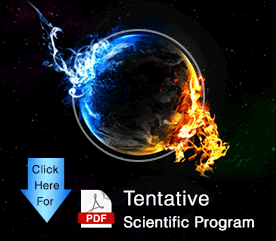Patrick Pale
University of Strasbourg, France
Title: From homogeneous to heterogeneous catalysis towards greener chemistry: The zeo-click and zeolite-based organic synthesis approaches
Biography
Biography: Patrick Pale
Abstract
Organic synthesis is the art of building molecules in a controlled way, up to highly complex natural and bioactive compounds. Mostly relying on metals as reagents or catalysts, organic synthesis is facing a huge and increasing problem: metal availability and sustainability. To help solving this problem, we are combining the properties of zeolites with the catalytic properties of some metal ions, trying to develop an alternative organic chemistry that we called zeo-click chemistry. For that purpose, we are developing and using new heterogeneous catalysts based on zeolites (i) easy-to-prepare, easy-to-handle, easy-to-recover and recyclable, (ii) able to efficiently, quickly and reliably generate substances by joining appropriate units together, what we called the "zeo-click" approach. (Sch. 1). To go even further towards greener synthesis, we are currently exploring an alternative to the conventional solution- and solid-phase organic syntheses, based on such zeolite catalysts, what we called ZeoBOS: each step would be performed through a zeolite, either native or modified, catalytically converting a molecule to another one (Sch. 2). In sharp contrast to homogeneous catalysis, a single heterogeneous catalyst can be applied to major types of organic transformations such as multi-component reactions, coupling reactions, cycloadditions, etc (Sch 1). Furthermore, metalated zeolites are efficient and reusable catalysts, and they can keep their activity in water, alcohol or without solvent. The 1st total synthesis of a natural bioactive product has been achieved based on these metalated zeolites as catalysts

